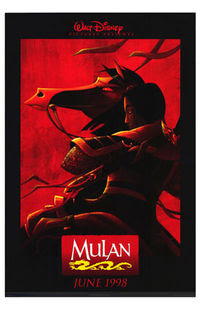
Once upon a time, a white snake and a green snake who had magical power in the Mountain Er-Mei and had transformed into two beautiful young ladies, on white, one green. They met a man named Hsu Sheng at the West Lake of Hang-Zhou city. The white snake fell in love with Hsu Sheng at first sight. They got married soon after.
The Lady White helped her husband to open an herbal medicine store by writing the prescriptions. Patients unable to pay were given free treatment and medicine. The store quickly became well known and popular. One day a monk called Fa Hai saw the couples and warned Hsu Sheng that his wife was a white snake.
It was during the Dragon Boat Festival, when Chinese families like to decorate with calamus and Chinese mugwort around the house and drink wine to drive away spirits. This was dangerous to Lady White and Lady Green, since they were spirits after all. Lady White was pregnant at that time and her magical power had weakened a lot. She tried to drink wine to please her husband. Unfortunately, she couldn’t control herself and turned into her snake body in her bedroom. Hsu Sheng saw the white snake and was literally scared to death.
In order to save her husband's life, Lady White went to steal the resurrection plant on the Kunlun Mountain. She failed. But her true love won the resurrection plant and the life of Hsu Sheng was restored.
Hsu Sheng remembered Fa Hai and went to the Golden Mountain Temple to see him. Fa Hai suggested Hsu Sheng become a monk to forget his wife. Fa Hai could take care the spirits. Lady White asked a great army of underwater creatures for help and brought forth a flood over the Golden Mountain Temple to fight with Fa Hai. Fa Hai had the magical power too and asked the heavenly soldiers to save his temple. Since the Lady White was pregnant, she was too weak to fight harder, She gave up the battle and waited for the time after giving birth.
Hsu Sheng went to see his son and carried a magical hat from Fa Hai for his son. The magical hat captured the White Snake. Fa Hai imprisoned the White Snake inside the Thunder Pagoda.
The Green Snake was unable to fight Fa Hai alone, escaped and practiced in her magical power even harder. After the son of Lady White grew up. She took revenge by destroying the Thunder Pagoda and rescued White Snake. White Snake reunited with her husband and her son. The story ended here.






